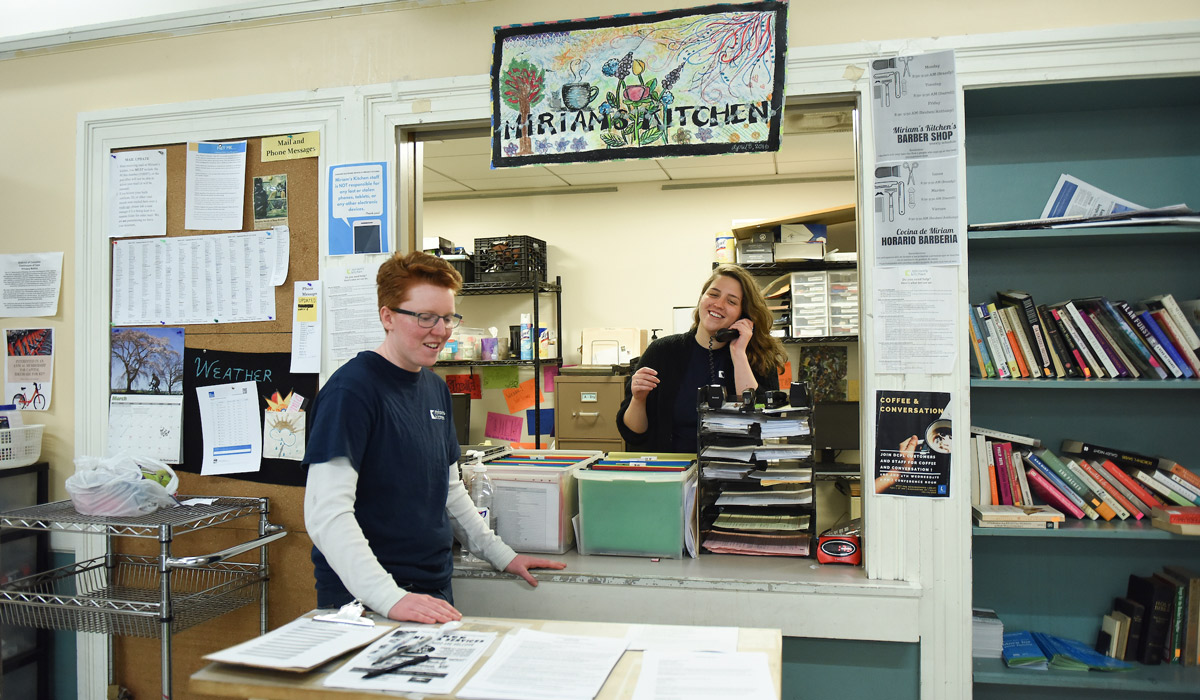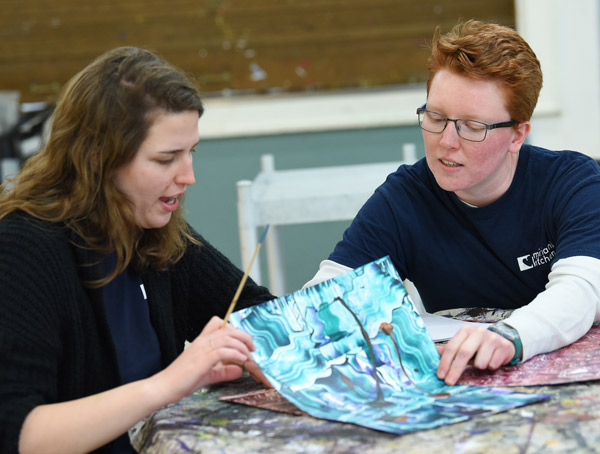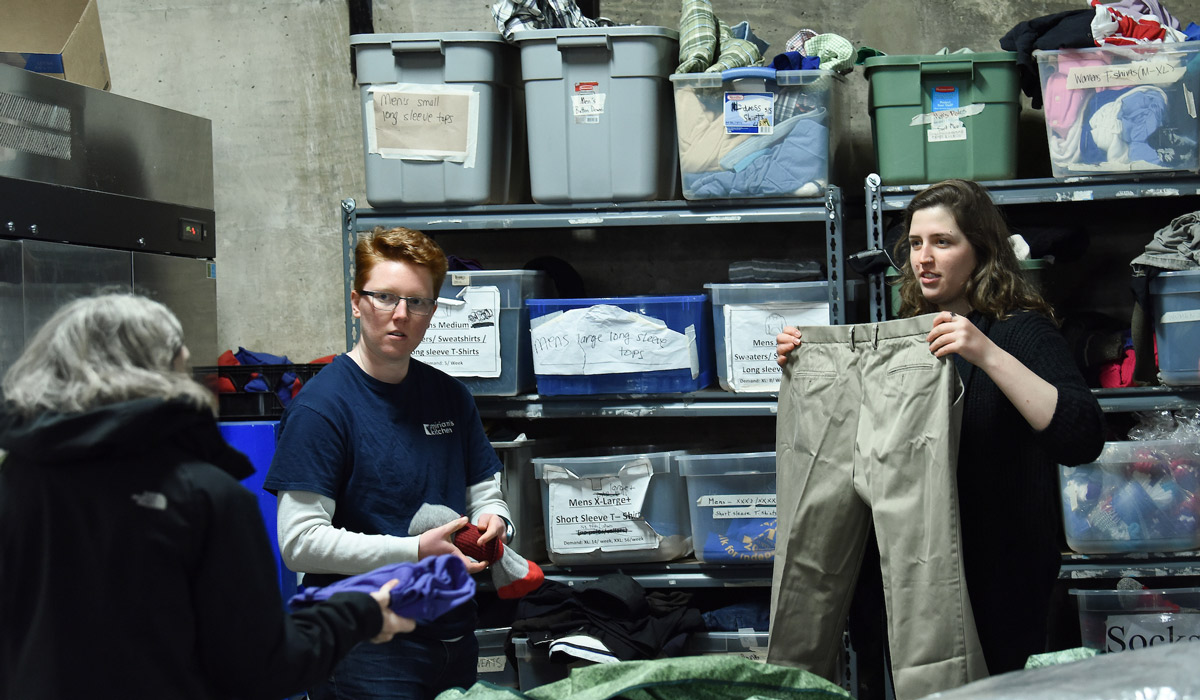

Imagine a doctor who had never done medical school rotations with actual patients. Impossible, you say! Now consider a social worker who had never done field work before taking on clients as a professional. The idea is similarly unimaginable.
“When you go into the field, it’s like leaving the observation room and going into practice for yourself,” said Roslynn Scott-Adams, assistant dean and director of field education and professional development in the National Catholic School of Social Service.
Field education is the practice by which social work students – at both undergraduate and graduate levels – go into the community to work with clients in real-life settings. About 250 to 300 Catholic University students might be in the field at any time, at placements including elementary schools, hospitals, homeless shelters, domestic violence shelters, and family court, among others. They engage with children, the elderly, and everyone in between.

Students do their first placement spring of junior year – a semester earlier than most programs – followed by two semesters senior year. As an M.S.W. student, the foundational (first) year includes 16 hours of field work each week, followed by 20 hours per week in the advanced (second) year.
“In social work, the individual is the primary tool,” said Scott-Adams. “It takes practice to go work for the people we serve. There is no social work education without field education.”
She added, “the only way to learn how to do social work is to go out and do it.”
The M.S.W. program has three tracks: clinical, social change (with an emphasis on equity and justice), and a combined concentration. It is offered both online and on campus. While all social work programs have a field work component, this one is unique in that it incorporates Catholic social teaching into both the curriculum and the choice of partner agencies where students are placed.
“Catholic social teaching mandates a preferential option for the poor, and pretty much every agency we work with works with the poor. That guides our choice,” said Eileen Dombo, associate professor, assistant dean, and M.S.W. program chairperson. “Whether they are religious or not, most are engaged in corporal works of mercy.”
M.S.W. students are placed with an agency for both semesters, and while it’s ideally a clientele they have an interest in, they’re also encouraged to explore environments they might not have considered previously. Sometimes, a placement doesn’t work out, but that’s part of the learning process, too.
The field work component includes a weekly seminar in which students discuss challenges (and successes) they are having on site. These classes are an opportunity for feedback from peers and professors and a chance to evaluate their own actions and assumptions.
In Christine Anlauf Sabatino’s class on a cold February afternoon, her students listened as one presented about a recent interaction with a teen client at a hospital. They asked probing questions and offered suggestions of how to engage the client next time. They also laughed and encouraged each other.
Sabatino followed the conversation, interjecting – a la Socrates, she said – when she thought the group had overlooked an important morsel of information or behavioral theory.
“I try to create a safe space for the students, so they can ask everything from complex critical thinking questions to goofy stuff,” said Sabatino, professor and director of the Center for the Advancement of Children, Youth, and Families.
“I say you can’t grow out of these situations if you’re not ready to reveal them,” she added. “It ties into something that’s really foundational for professional social work, which is that we have to have great awareness about ourselves and how that influences our relationship with our clients.”

Social work goes beyond just extending compassion or practicing volunteerism. At the National Catholic School of Social Service, we are educated in the study and science of helping — driven to discover and put into practice the most impactful ways to serve the world’s greatest needs.